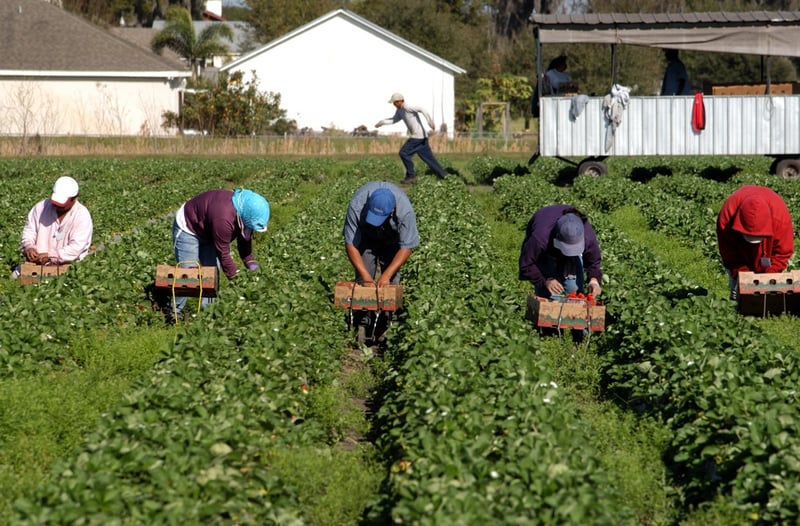California labor law is a dynamic force in the economics of the state. Employers and their HR staff must, by necessity, stay informed and in compliance.

The following is a brief round-up of some key Califorina labor law updates regarding classes of California workers who are often overlooked and, many times, underpaid.
McDonald's Settles its First Ever Labor Lawsuit with U.S. Franchise Workers
McDonald’s has agreed to pay $3.75 million to settle a lawsuit claiming it was liable for labor law violations by a California franchisee. This marks the first time the company has settled legal claims by a group of U.S. workers at one of its franchises. It also establishes the McDonald’s is considered a “joint employer” of franchise workers.
The settlement came about after lawyers, representing about 800 employees at five restaurants owned by a single franchisee, filed suit in the U.S. district court in San Francisco in October 2016,. The court eventually ruled that Illinois-based McDonald’s would pay the workers $1.75 million in back pay and damages and $2 million in legal fees.
While the settlement must first be approved by a federal judge, it also comes as McDonald’s faces claims before two U.S. agencies that it is a “joint employer” of workers at franchise restaurants. This is a legally significant designation that could make the company liable for legal violations by franchisees. It also sets a disturbing precedent for other national frachises operating in California.
McDonald’s corporation disagrees with the designation.
“We entered into this mutually acceptable resolution to avoid the costs and disruption associated with continued litigation,” said McDonald’s spokesperson Terri Hickey.
The 2014 lawsuit claimed McDonald’s and the franchisee, Smith Family LP, violated California law by failing to pay overtime, keep accurate pay records and reimburse workers for time spent cleaning uniforms. The franchisee previously settled the claims for $700,000.
Last year, a judge ruled that McDonald’s was not the plaintiffs’ joint employer under federal and state laws. However, the judge stipulated that the company could still be held liable if the workers believed McDonald’s was their employer.
The settlement would also require McDonald’s to train Smith Family, the franchisee, on the use of corporate software designed to ensure compliance with California’s uniquely strict employment laws, according to the court filing.
Currently, McDonald’s is also in a trial at the National Labor Relations Board that could determine whether the company is a joint employer under the federal law governing union organizing.
California Labor Law Expanded to Protect Janitors
California lawmakers have recently expanded California labor law to provide increased protections for the over 220,000 janitorial workers in the state. Many of these are often vulnerable workers and at risk for sexual harassment and assault.
The new law signed by California Governor Jerry Brown on September 15, 2016, sets up registration and training requirements to help workers in the janitorial industry protect themselves against sexual harassment and assault. Employers who violate the new California labor bill could wind up losing their registration. The law is written entirely to serve the janitorial services industry.
The bill requires all employers to register annually and pay a $500 registration fee. If the employers are found to have violated California labor law, they can have their registration denied.
Furthermore, the bill requires employers to distribute notices about the bill, including information about sexual harassment prevention, and provide employees with training about sexual harassment prevention.
A Class of Workers Overlooked But At Risk
In 2015 PBS published a report titled Rape on the Night Shift that shared the experiences of female janitors. These employees are at risk for sexual harassment and assault because they tend to work in isolation, are female and may not always understand their rights.
Additionally, a report by the University of California, Berkeley, Center for Labor Research and Education titled Race to the Bottom notes that isolation is an important factor in sexual harassment and assault.
The report notes that, "Employers in the property services industry typically service a large number of worksites… Being isolated from co-workers and the public reduces the likelihood that anyone will intervene or serve as witnesses and allows supervisors to exert greater control over workers."
"We have allowed these women to become targets for sexual violence by neglecting their working conditions and basic safety on the job, but we cannot ignore this threat anymore," the bill’s sponsor said. "[this] will ensure these women—too often unseen while working alone at night—finally begin to receive the transparency and protection from rape and sexual assault they need to be kept safe."
Undocumented Workers Have Legal Rights in California
Undocumented workers and illegal immigrants in California make up ten percent of the State’s overall work force and contribute to over $130 billion to the gross domestic product in the State.
These are estimates drawn from a joint study by the University of Southern California and the California Immigrant Policy Center (CIPC). The numbers reflect the significant importance undocumented workers have in the California economy, and especially in industries such as agriculture which continue to depend heavily on undocumented workers.
What is often overlooked is that these undocumented workers have legal status, with certain rights under the California Labor Code, in the state of California. They are also able to participate in litigation against defendants who might be accused of mistreatment.
This was the impetus behind a recent California wage and hour suit brought against the operator of a California restaurant. The suit, by two allegedly undocumented workers, was filed in hopes of holding their employer accountable for nonpayment of wages.
The case was Misael Avila, et al v. Naimat Kadah International, in US Court of Appeals for the Ninth Circuit The plaintiffs, Misael and Sergio Avila, were eventually awarded the plaintiffs $33,000 in back wages for overtime without preconditions for payment.
The original ruling has since come under a subsequent ruling by the Ninth Circuit with regard to the inclusion of payroll taxes. What is significant in this case is that it has been established that courts in California view allegations of wrongdoing towards undocumented workers with equal weight to those of documented workers.
Although deportations do occur in California, over 120,000 deportations in recent years in the state, it has been demonstrated that undocumented workers are viewed as integral to the economy of the state, with protections of workers’ rights under California labor law advancing on an ongoing basis.
Complying With California Labor Law
A key step in maintaining HR compliance and increasing your company's cost-effectiveness is to consider outsourcing. A professional payroll management and workforce solutions provider such as Accuchex can offer much-needed help with Human Resources needs and questions.
If your organization would like to learn more about its obligations, or acquire resources to deal with these types of situations, Accuchex recently partnered with HR Solutions Partners to offer its customers the most up-to-date and professional human resources management solutions available. To learn more about the different levels of Human Resource Management services available, please follow this link.
To learn more about the services Accuchex provides, click on the button below to download our free guidebook.


